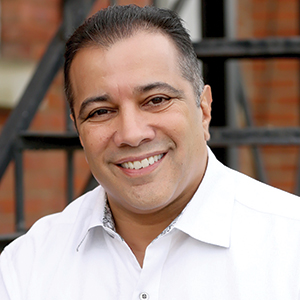Creating a family constitution can promote family values and harmony but also prevent conflicts that can tear families apart and diminish fortunes.
“In the past, this construct was primarily used by the ultra wealthy. However, creating a constitution has become more mainstream anywhere wealth is being passed on,” says Frank Frantozzi, CPA, MST, PFS, CDFA, AIF®, CEPA, president and founder of Planned Financial Services.
By establishing a set of rules around the family’s wealth and core values, it creates a governance structure for navigating the family’s affairs for generations to come.
Smart Business spoke with Fantozzi about creating a constitution to help ensure clarity and transparency in the preservation of multigenerational wealth.
Who should be involved in creating a family constitution?
It’s important to include the children in estate planning so they understand how the family’s wealth can best be managed going forward. Leaving the children in the dark only creates larger problems when they actually inherit the wealth. Who else is involved will depend on the individual family. Having an outside adviser is critical for establishing family goals and ensuring that everyone’s voice is heard.
The constitution is not a private document. All beneficiaries have a right to know what’s in it, to have a say over what they feel is theirs. Without a say, you will fail to get buy-in, resulting in family members feeling wronged by how decisions are being made. It’s best to establish your family constitution when everyone is getting along and can agree on how they will deal with conflicts and disagreements.
An adviser can help people speak openly, and address different political views and opinions, how the family is tied to wealth, what it wants to do with the money and how everyone is going to work together. Having these conversations creates a commonality and gives everyone a constructive voice. Ultimately, you want to avoid jeopardizing family relationships because you didn’t plan ahead and come to a consensus about how to deal with the wealth across future generations.
What should the family constitution include?
The document contains sections on family ideology, reasons to stay together as a family and provides context for potential conflicts that may arise. It spells out the family’s goals and values, as well as the voting process. It’s also important to include a process for opting out that details what family members ‘give up’ in doing so. Unlike a buy-sell agreement, which essentially accomplishes the same thing between business owners, a family constitution is not legally binding. But because it provides accountability and a baseline that everyone has committed to and bought in to, it allows you to relax knowing you have an ideology and rules in place that you’ve agreed to abide by despite their differing opinions.
An effective family constitution should specify:
- How wealth will be used by family members.
- Any limitations on how wealth is spent, invested or donated.
- Who has decisions-making authority and how decisions are made.
- How family members can provide input or impact decision making.
- How the family will perpetuate family values and manage the family wealth.
How often should the constitution be reviewed?
Ideally, meeting once a year keeps everyone committed to discussing goals, use of money and its management. You want the children to appreciate what the family has built and understand the values that previous generations pass along to future generations, especially when families tend to be more spread out and not as anchored.
The greater the wealth, the more complicated things can become. Wealth can disappear as fast as it’s built through mismanagement and family discord. So, the more objective the document is, the better it serves as a roadmap to ensure the continuation of wealth into subsequent generations and a forum for problems to be aired, discussed and resolved. That can go a long way toward preventing family conflict and preserving multigenerational wealth. ●
INSIGHTS Wealth Management is brought to you by Planned Financial Services

